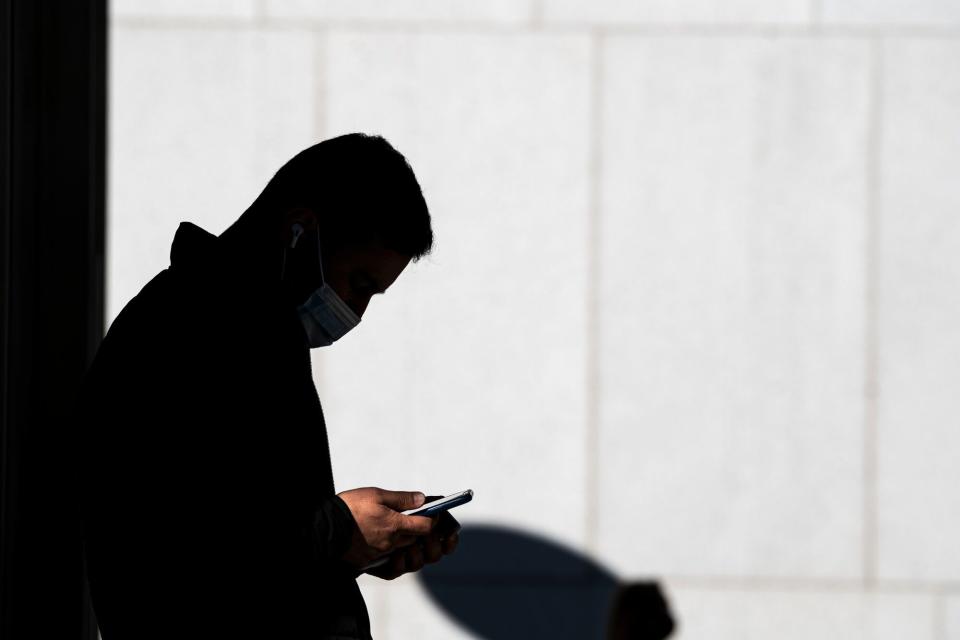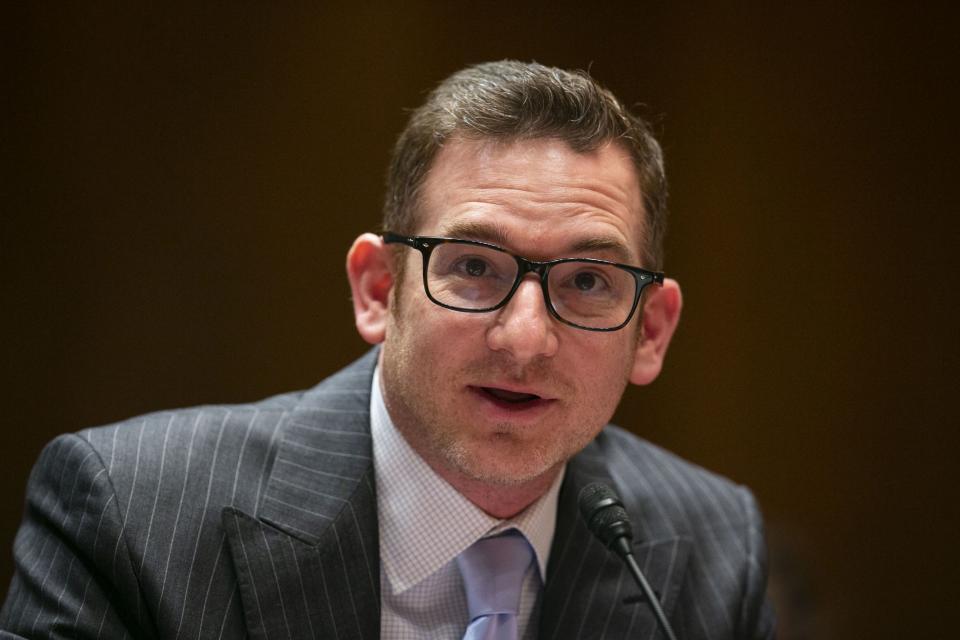Apple Considered, Rejected Switch to DuckDuckGo From Google
(Bloomberg) -- Apple Inc. held talks with DuckDuckGo to replace Alphabet Inc.’s Google as the default search engine for the private mode on Apple’s Safari browser, but ultimately rejected the idea.
Most Read from Bloomberg
Israel Latest: Israeli Death Toll in Hamas Attack Reaches 1,200
Hamas Got Around Israel’s Surveillance Prowess by Going Dark
Israel Latest: Top US General Warns Iran to Stay Out of Conflict
Afghanistan’s Viral Supercar Makes Global Debut at Doha Show
China Mulls New Stimulus, Higher Deficit to Meet Growth Goal
The details of those talks — and Apple’s discussions about buying Microsoft Corp.’s Bing search engine in 2018 and 2020 — were revealed late Wednesday in transcripts unsealed by US District Judge Amit Mehta, who is overseeing the US government’s antitrust trial against Google.
DuckDuckGo Chief Executive Officer Gabriel Weinberg testified that his company had about 20 meetings and phone calls with Apple executives, including the head of Safari, in 2018 and 2019 about becoming the default search engine for private browsing mode. In private mode, Safari doesn’t track websites that a user visits or keep a history of what a person has accessed.
“We were talking about it, I thought they would launch it,” Weinberg said, noting that Apple had integrated several of DuckDuckGo’s other privacy technologies into Safari. “Multiple times we’ve gotten integrations all the way through the finish line. Really, almost everything we’ve pitched except for search.”
The unsealed testimony clarifies how Apple considered various alternatives to Google in search, but ultimately stuck with Google and their lucrative revenue sharing agreement. In almost four weeks of trial testimony, the government has tried to show how difficult it has been for other companies to compete with Google in search, where it has cornered a 90% share of the market.
The Justice Department alleges the billions of dollars Google pays to Apple and others to be the default search engine on web browsers and smartphones have kept alternatives, like Microsoft’s Bing and DuckDuckGo, from building up users and becoming rivals to Google.
John Giannandrea, who joined Apple as the head of search in 2018, said that to his knowledge Apple hadn’t considered switching to DuckDuckGo. In a February 2019 email to other Apple executives, Giannandrea said it was “probably a bad idea” to switch to DuckDuckGo for private browsing in Safari.
“The motivating factor for setting DuckDuckGo as the default for private browsing was an assumption” that it would be more private, Giannandrea testified. Because DuckDuckGo relies on Bing for its search information, it also likely provides Microsoft some user information, he said, which led him to believe that DuckDuckGo’s “marketing about privacy is somewhat incongruent with the details.”
If Apple seriously wanted to switch to DuckDuckGo, “I would probably insist on doing a lot more due diligence with DuckDuckGo,” he said.
DuckDuckGo declined to comment on the on the testimony but a spokesperson noted that the company’s privacy policy states it prevents “hosting and content providers from creating a history of your searches.” Apple didn’t respond to a request for comment.
In earlier testimony, Giannandrea noted that Apple’s latest iPhone software update allows users to select a search engine other than Google’s when browsing the internet in private mode. Google will still be the default search engine for Safari in private mode, but users have a choice to pick Yahoo, Bing, DuckDuckGo or Ecosia for private browsing, he said.
Read More: What’s at Stake in Google Trial on Antitrust Charges
In contrast to his comments about DuckDuckGo, Giannandrea said that Apple CEO Tim Cook asked him to talk with Microsoft executives in 2018 about possibly using Bing’s search engine for Safari. The companies had a series of meetings in the fall of 2018 and again around Christmas in 2020 to discuss a joint venture or possible sale of Bing to Apple, he said.
As part of the talks, Apple studied Bing’s search results compared with Google. The May 2021 study found that Google provided better results everywhere except for English language search information on desktop, where Bing’s results tied with Google’s.
Microsoft CEO Satya Nadella testified Monday about his company’s negotiations to persuade Apple to make Bing the default search engine on the Safari browser rather than Google. Nadella said Microsoft was willing to lose billions of dollars if Apple made the switch.
Read More: Apple AI Chief Posits New Private Browser Search at Google Trial
Mehta ruled Wednesday that the testimony by Weinberg and Giannandrea “goes to the heart of the case” and should be released. Some testimony about similar discussions between Microsoft and Apple also hadn’t been made public.
Talks about “partnership deals – I’m talking about the testimony concerning potential deals between Microsoft and Apple and DuckDuckGo and Apple – that will be unsealed,” Mehta said in an order from the bench, adding that he viewed it as “critical to the case.”
Apple and Google requested that the testimony remain private. Mehta said he went through the transcripts “line by line” and released the executives’ comments with the exception of trade secrets, such as the project names within Apple, and the exact financial figures under discussion.
--With assistance from Mark Gurman.
(Updates with context in fifth paragraph)
Most Read from Bloomberg Businessweek
The War in Israel Shows How Social Media’s Idealistic Era Has Ended
Worst US Bond Selloff Since 1787 Marks End of Free-Money Era
©2023 Bloomberg L.P.

 Yahoo Finance
Yahoo Finance 

